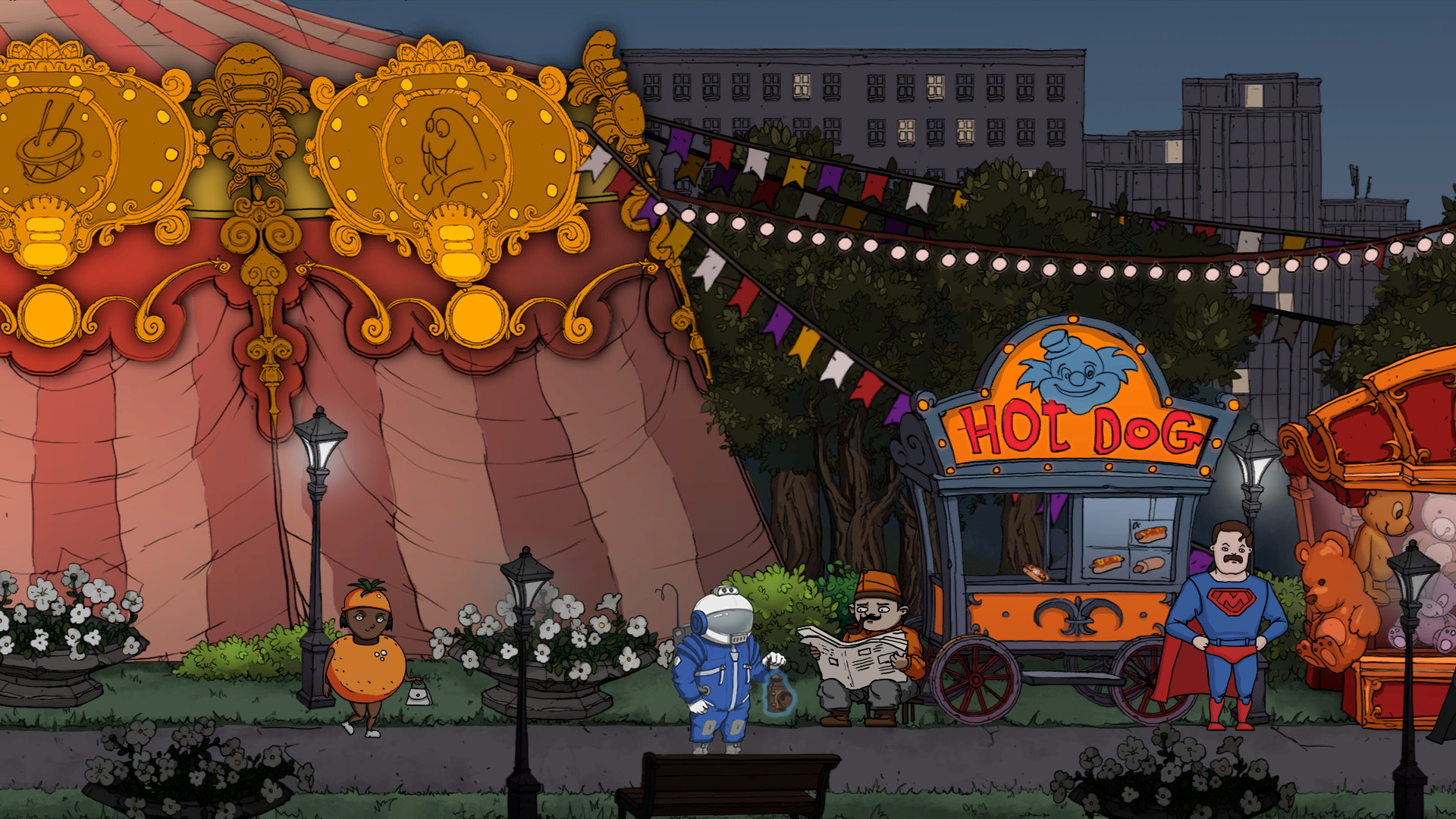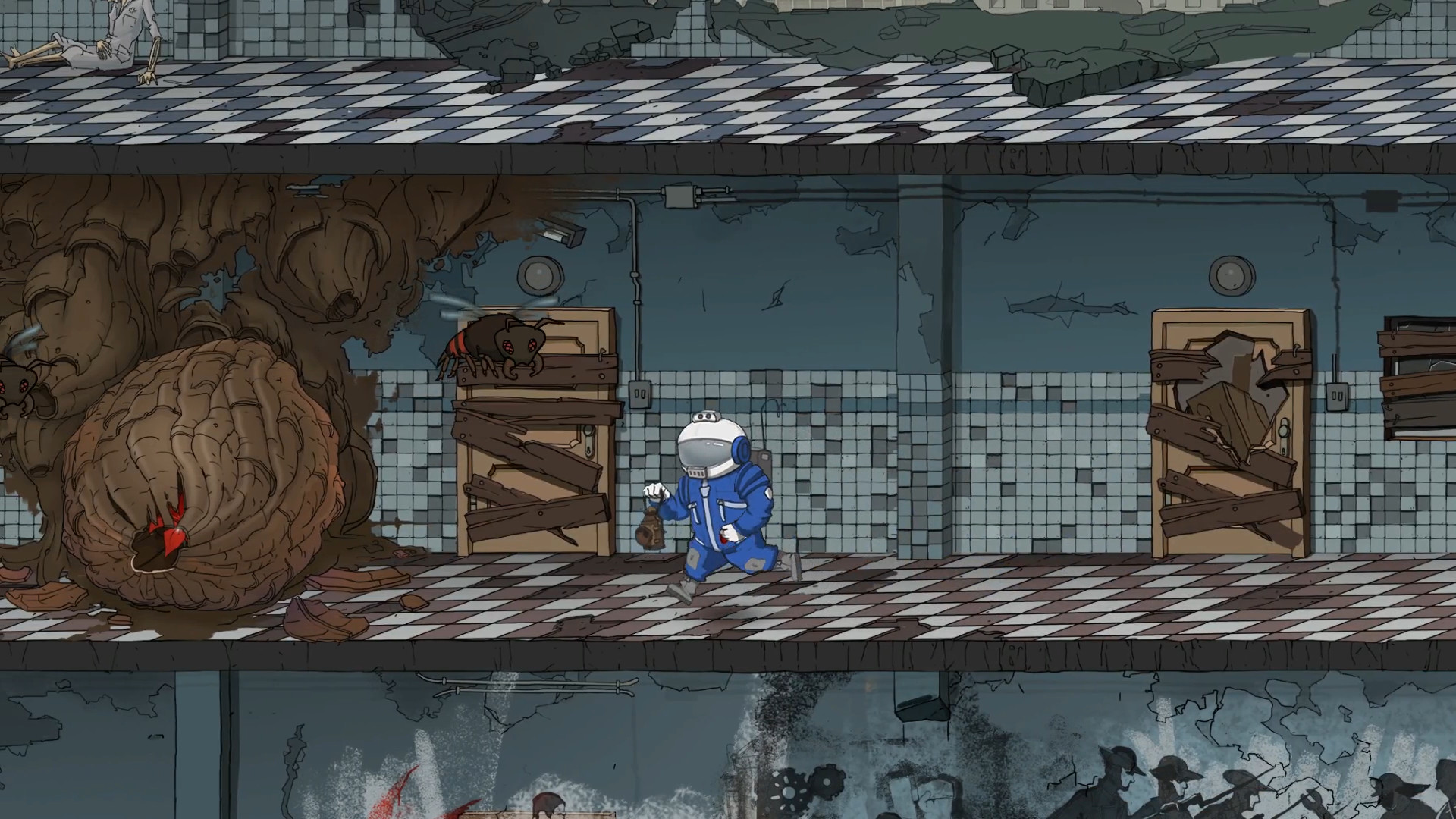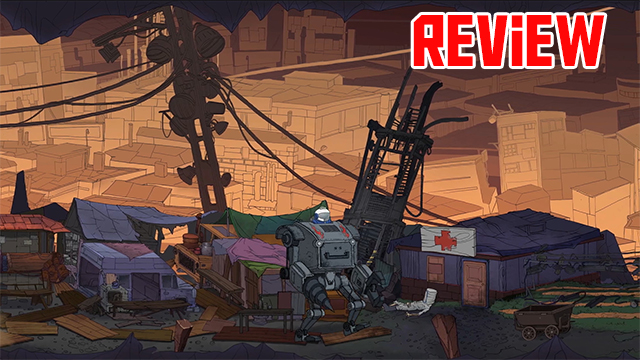While there are titles like Fez and Hollow Knight that showcase an incredible amount of polish and charm, most indie developers wind up creating something pretty rough around the edges their first time out. Even though they may be lacking in certain areas, games by talented studios usually something to latch onto, be it an interesting gameplay hook or an interesting art style, that manages to stand out while playing. However, there is no such redeeming quality for THE GREAT PERHAPS, the first game by Russian indie developer Caligari Games.
What makes their maiden title all the more disappointing is that it has a pretty interesting premise attached to it. The story follows an astronaut that awakes 100 years after being cryogenically frozen. The last thing he remembers is a large explosion happening on the Earth and he quickly realizes that everybody he knew is now dead including his wife and family. That’s quite the gut punch to start off a game with and the protagonist responds by asking the ship’s computer A.I. to let him commit suicide through removing all the oxygen within the ship. It’s a heavy request, and while the choice to die was made purely on impulse, it’s one that has an underlying logic to it.
Sadly for the player, as this would’ve been a much more thought-provoking experience had he just died then and there during the opening cutscene, the ship’s A.I. refuses to grant the request by saying it is illogical. Rather than try to find another way to die, which would probably be quite easy in outer space, the astronaut decides to take the A.I. with him and travel to Earth in order to figure out what happened to the world and his loved ones in the past 100 years. The opening moments sum up a lot of what is wrong with The Great Perhaps as it introduces a potentially interesting idea, although not an entirely original one, and then proceeds to do barely anything with it. The main character goes from suicidal to deciding to go on an adventure in mere seconds and his depression and loneliness is barely touched upon again.
The Great Perhaps Review | Bad story, worse gameplay

Once on Earth, the astronaut learns that there is only one human life-form within a 100-kilometer radius of him. He goes to seek it out and finds a strange lantern that allows him to temporarily shift between the current day, which sees the world being reclaimed by radiated monsters and nature, and a time from before the incident. This winds up being The Great Perhaps‘ key gameplay mechanics as the player has to alternate between the two worlds in order to safely navigate some dangerous locales and solve some puzzles. This is hardly an innovative idea, as many games ranging from Day of the Tentacle, Titanfall 2, and Dishonored 2 have used it in the past, but it’s a proven concept that could make for some great puzzles and memorable sequences.
Sadly, The Great Perhaps never provides any sort of memorable sequences or even an interesting puzzle throughout its two-hour runtime. Every aspect of its gameplay is stunted by terrible controls, rough concepts, and poor design. The astronaut can only carry one item at a time, so a lot of the puzzles are simply running back and forth between dangerous areas while alternating between the past and present day.
This would be decent enough if the switching mechanic worked better, but it’s one of the worst parts of the entire experience. Players can see an outline of the alternate dimension they can switch to by using their lantern, but the game’s hit detection is so poor that it’s easy to swap to the other world and automatically die because you landed on some debris rather than a sidewalk. These frustrating moments are paired with an annoying mechanic that limits how much time the player can spend in the past as they will automatically switch back to the present day without any on-screen timer indicating that it’s going to happen.
Every aspect of The Great Perhaps is underdeveloped and lacking any sort of polish. Not only is the mechanic the game is based around a chore to get through but simply picking up objects can be an exercise in frustration if two objects are near each other since the player can’t choose which one to select. This doesn’t happen all that often, but I once laid down a watering can next to some fertilizer and found it easier to restart the level than pick it back up. While the puzzles and enemies are meant to provide challenge in The Great Perhaps, the game’s controls are its most infuriating foe.
The Great Perhaps Review | A great mishaps

The marketing spiel for The Great Perhaps promises “memorable characters with personal stories” and “innovative storytelling,” but this sadly can’t be further from what the game actually presents. There are a handful of characters that the player talks to throughout the experience, and they have zero depth to them. One such character is a suicidal writer (an idea so absurd that truly tests the limits of fiction) that the astronaut convinces to not jump off a building by going into a nearby library in the future and showing him that his book gets published. The game’s handling of depression and suicidal ideation is pretty embarrassing all around and doesn’t dare to interact with these topics in any nuanced ways. Not helping matters is that the already one-note dialogue is poorly delivered through lifeless performances from the game’s handful of voice actors. So it’s both bad in what it says and how it says it.
The highlights of The Great Perhaps are few and far between. It’s mildly interesting to see how nature has reclaimed the world since mankind was wiped off the face of existence but it’s not as intriguing as Tokyo Jungle or the litany of novels and films that have touched upon the subject. There’s nothing original here and the gameplay is so unpolished that it offers nothing for players aside from some easy to unlock achievements that are dished out for simply getting through the story. Hopefully, Caligari Games can learn from this and make something better in the future but this is one gigantic miss and perhaps one of the worst games of the year.
GameRevolution reviewed The Great Perhaps on PC with a copy provided by the publisher.
-
It doesn't go down a Her route.
-
This premise has been done much better by others.
-
Terrible voice acting.
-
Horrendous control scheme.
-
Horrible writing.
-
Boring puzzles.







